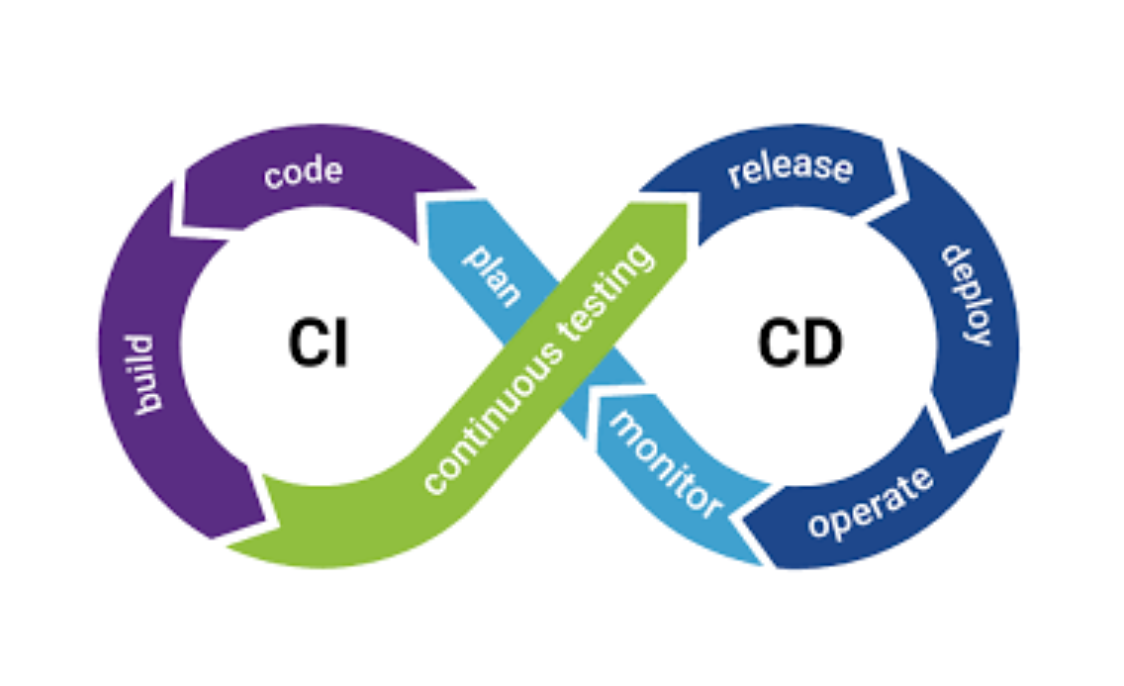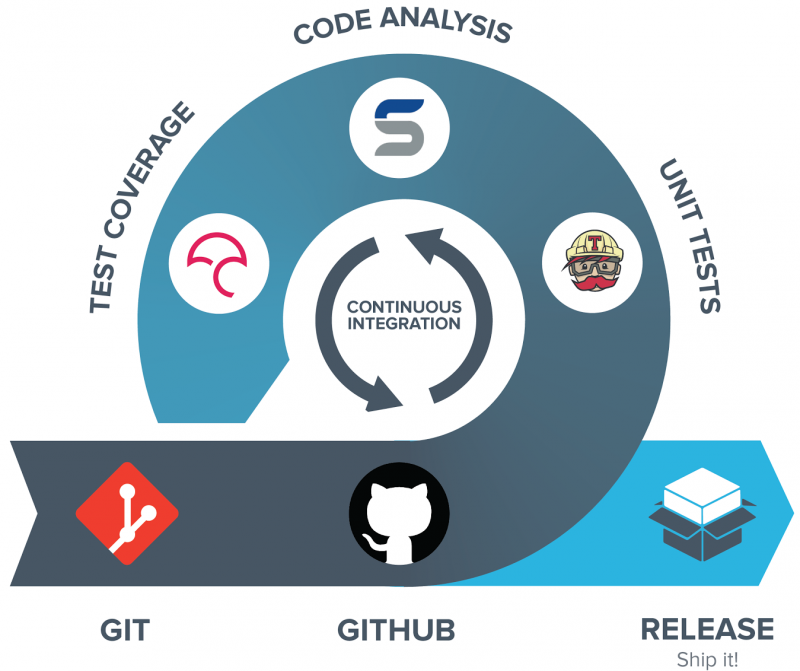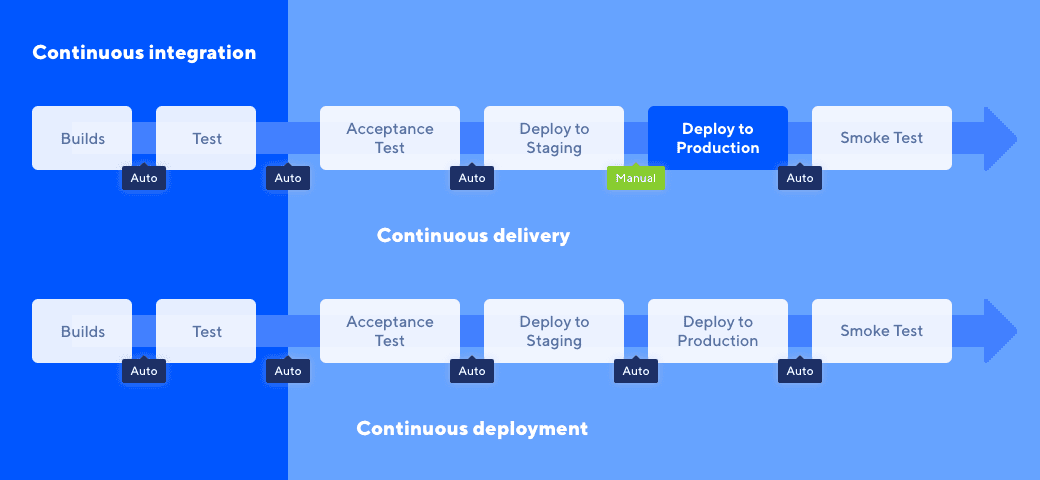CI/CD is an acronym used to refer to two separate and distinct parts of the software development lifecycle (SDLC), which are often discussed as one.
Continuous integration (CI) focuses exclusively on the source code management and centralization functions, allowing all developers to merge their source code changes many times a day.
Every change submitted to an application, including to development branches, undergoes automatic and continuous building and testing. These tests verify that the changes pass all the established guidelines, code compliance standards, and other tests for the application.
For the purposes of this blog post, we will focus on “continuous deployment,” which is defined as the process of engineering functionality that deploys frequently using deployment automation.
You can see the difference between continuous integration, continuous delivery and continuous deploy below.
1. CI/CD significantly reduces risk
Deferred integration is unpredictable and puts your project at risk. Continuous Integration (CI) integrates, runs tests, and inspects code multiple times per day, making it easier to detect and remove bugs. Automating the integration process can save time and effort by ensuring that the process is consistent and follows an ordered sequence.
2. Automation reduces manual processes and makes your team more productive
Automating CI ensures that the same process is followed everywhere and runs every time a commit is made. This means developers don’t need to spend time manually building and testing the software, freeing them up to focus on more important tasks.
3. Continuous delivery means you can release at any time
CI enables you to release deployable software at any time by integrating small changes on a regular basis. The mainline branch is always ready for deployment, which reduces the time it takes to get new features into the hands of users.
4. Eliminate “works on my machine” problems
CI provides fast feedback when code is pushed to version control, eliminating the problem of code that only works on certain machines. This ensures that code works across all environments, which means developers can spend more time building features and less time troubleshooting.
5. Gain visibility into your projects and appliations
CI provides just-in-time information on build status and quality metrics, enabling you to notice trends in build success or failure and other project information. This allows developers to make more informed decisions about how to improve the software.
6. Increase overall confidence in the project and process
CI informs you when something goes wrong, giving developers and team members more confidence in making changes. This means that developers can make changes more frequently without worrying about breaking the software.
7. Helps you meet compliance requirements
Most compliance frameworks require that software be integrated and deployed in a standardized manner. This makes sense for all the reasons above, but has become even more important since governments are now requiring companies to meet requirements in the US, Europe, Australia and other countries.
CI/CD is powerful because it reduces risk, eliminates repetitive manual processes, generates deployable software at any time and at any place, eliminates “works on my machine” problems, gains project visibility, and increases product confidence. By implementing CI/CD processes developers can focus on building new features and improving existing ones, while knowing that the software is being tested and deployed in a consistent and reliable way.



